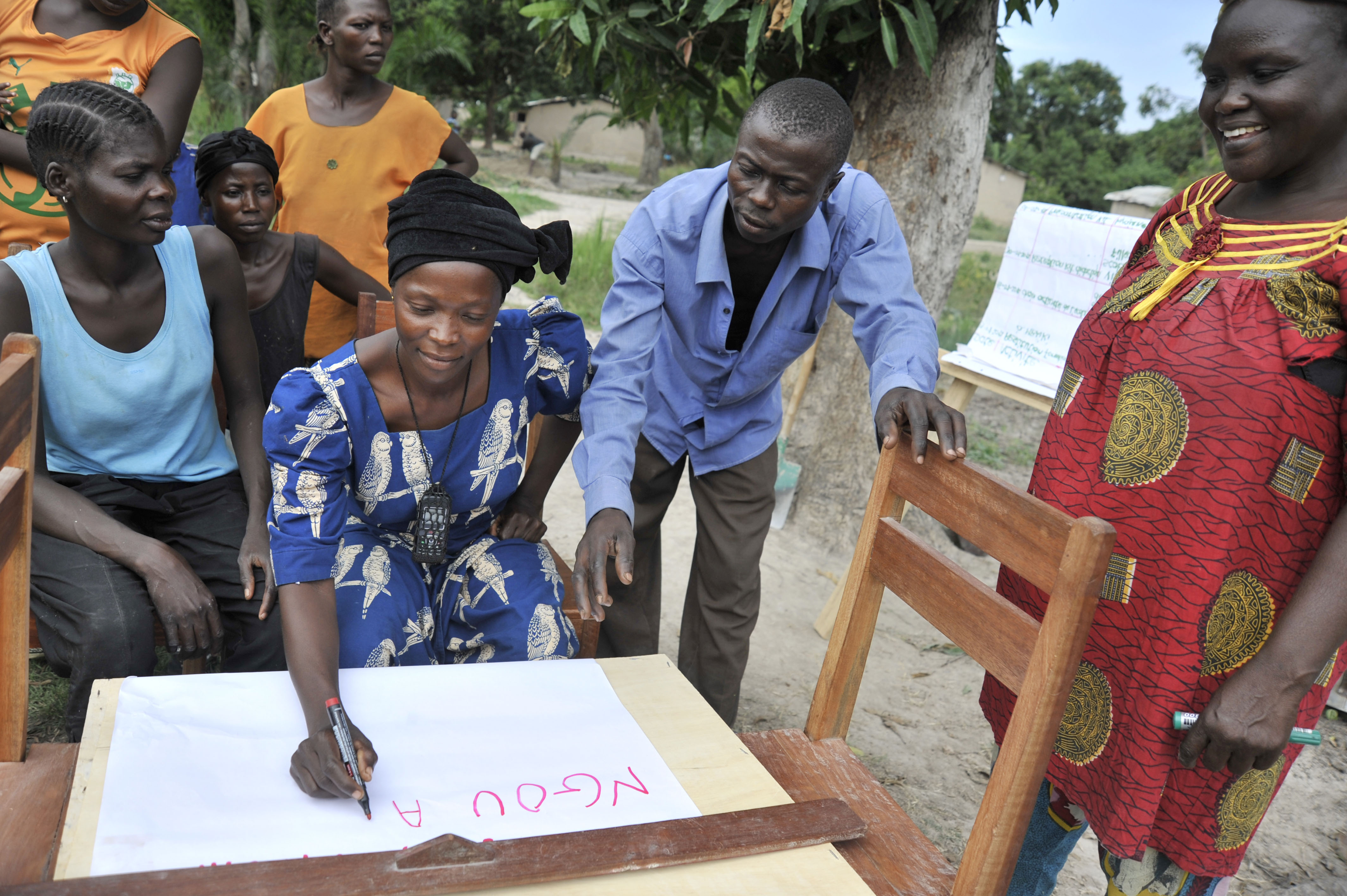Social Analysis and Action: a methodology for communities to lead their own way out of gender inequalities
26 January 2022

Social norms, defined as the unwritten rules existing within a given group or society, can strongly shape the way people live and behave. They are usually deep-rooted, unconscious and rarely unchallenged. Sometimes they may be too sensitive to discuss, becoming a taboo. When it comes to gender, these norms can affect the interactions and power relations between men and women within households and/or entire communities. They can create and perpetuate inequalities that often curb women’s access to resources and opportunities, thereby undermining their productivity and incomes, which can severely threaten food and nutrition security.
Confronting harmful social norms is a complex yet feasible and potentially extremely beneficial endeavor. This is what tells the evidence from the Social Analysis and Action in Food and Nutrition Security (SAA-FNS), a tested methodology developed by CARE International in order to transform gender and social norms through a community-led participatory process.
To become familiar with the methodology and discuss its application in their work, about 50 colleagues from the United Nations Rome-based Agencies (RBAs) – FAO, IFAD and WFP – as well as the European Union attended a technical learning workshop on the SAA-FNS. FAO and CARE hosted virtually the workshop on 16 December 2021 in the framework of the Joint Programme on Gender Transformative Approaches for Food Security and Nutrition (JP GTA), implemented by the three RBAs in collaboration with and through the financial support of the European Union.
“This successful initiative contributed to promoting staff’s capacity development and expanding the gender transformative agenda across the RBAs’ work, both of which are central to the JP GTA’s mandate,” said Hajnalka Petrics, the JP GTA Global Coordinator. “But this is just part of the beginning of a larger process. By getting familiar with the methodology and discussing possible ways to apply it, colleagues should be better able to refine them and take action aimed for a positive impact on households’ and communities’ food security and nutrition.”
Delivered by CARE’s team of experts who have developed the methodology, the workshop presented the key components of the SAA-FNS and promoted an interactive session to assess the audience’s ideas on how to apply the methodology in their working practices. This way, not only the participants were encouraged to think of possible actions but they also had the opportunity to receive customized guidance from CARE’s experts and feedback from their colleagues on their ideas.
“The SAA-FNS is an approach that CARE uses to stimulate critical reflection and action on discriminatory social and gender norms,” stressed Abinet Tasew, CARE’s Senior Technical Advisor for Gender and Livelihoods. “It uses participatory tools to achieve the long-term goal of empowering vulnerable communities through the advancement of equitable power dynamics in relation to gender and social norms.”
The SAA-FNS process is led by the very communities benefitting from it. Rather than providing top-down directions, the methodology encourages the collective thinking and flows through horizontal communication across community members, breaking the silos and exploring rarely or never discussed topics among them. A mixed or selected group of people sit to discuss common issues, dig into their causes, and come up with possible solutions. The dialogue is assisted by a facilitator, who walks participants through an evolving conversation that improves mutual understanding and allows for collaborative mindset shift.
“Unlike a trainer who gives knowledge to his/her students and always has answers, a facilitator values the experiences and knowledge of the participants. A facilitator poses the problems and sets the process in which the participants themselves search for answers and solutions,” highlighted Pranati Mohanraj, CARE’s Senior Technical Advisor.
Through a progressive series of discussions, community members accept to engage in a critical self-reflection about their gender norms, seeking to better understand their impacts on food and nutrition security, and to find motivation to change these norms if their impact is negative. The facilitator’s intervention must be subtle yet stimulating, taking careful consideration of the complexity and sensitivities in the local context and following the principle of “do no harm” to the communities. This is why the first step of the methodology is that those who apply and facilitate the process should first critically assess their own thinking about gender equality and gender relations, and consider possible effects on their actions.
“Critical thinking must begin with ourselves,” said Ilaria Sisto, FAO’s Gender and Development Officer. “This is part of an innovative learning process that aims to trigger change in the ways we do our work. With this workshop, we hope RBA colleagues and partners will be better able to foster reflection at the household and community levels.”
Initiated in 2004, CARE has adapted and applied the SAA-FNS in more than 65 projects across more than 20 countries with the aim to address diverse development and social justice issues, thereby fulfilling CARE’s global commitment to gender equality and women’s empowerment. Moreover, different development partners, including government stakeholders, United Nations organizations, and non-government organizations, have adapted the SAA-FNS as one of the most effective gender transformative approaches to change gender and social norms as an instrument for strengthening food and nutrition security.To learn more:
- JP GTA website: https://www.fao.org/joint-programme-gender-transformative-approaches/
- JP GTA flyer (in English): https://www.fao.org/publications/card/en/c/CB7065EN
- JP GTA flyer (in Spanish): https://www.fao.org/publications/card/es/c/CB7065ES
- Social Analysis and Action (SAA): https://www.care.org/our-work/health/strengthening-healthcare/social-analysis-and-action-saa/
Contacts:
- Hajnalka Petrics, Global Coordinator of the JP GTA: [email protected]
- JP GTA: [email protected]




